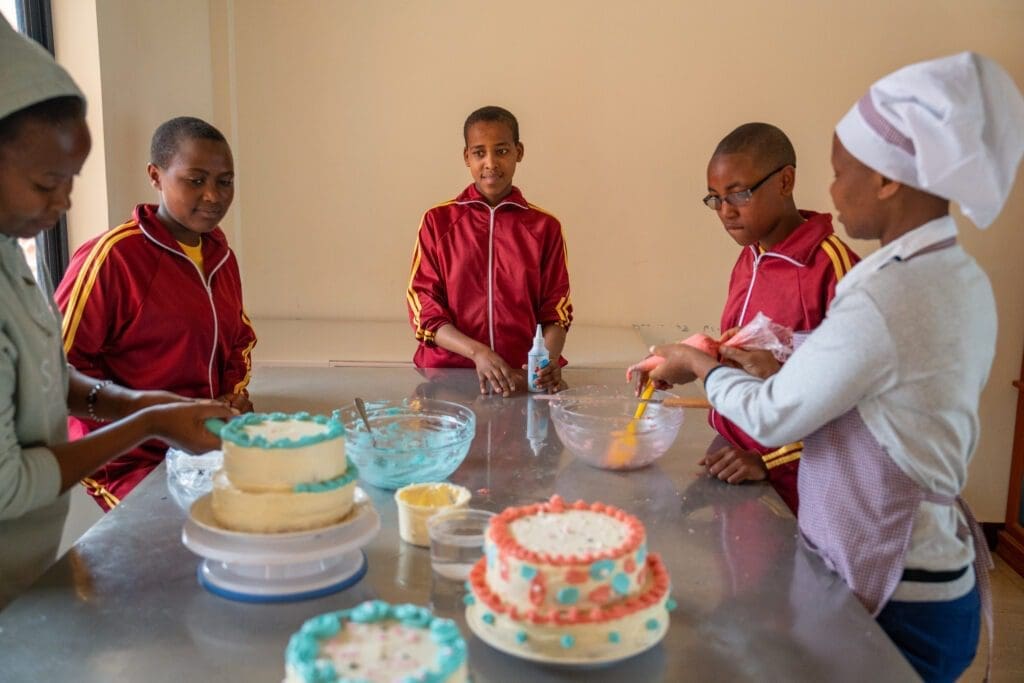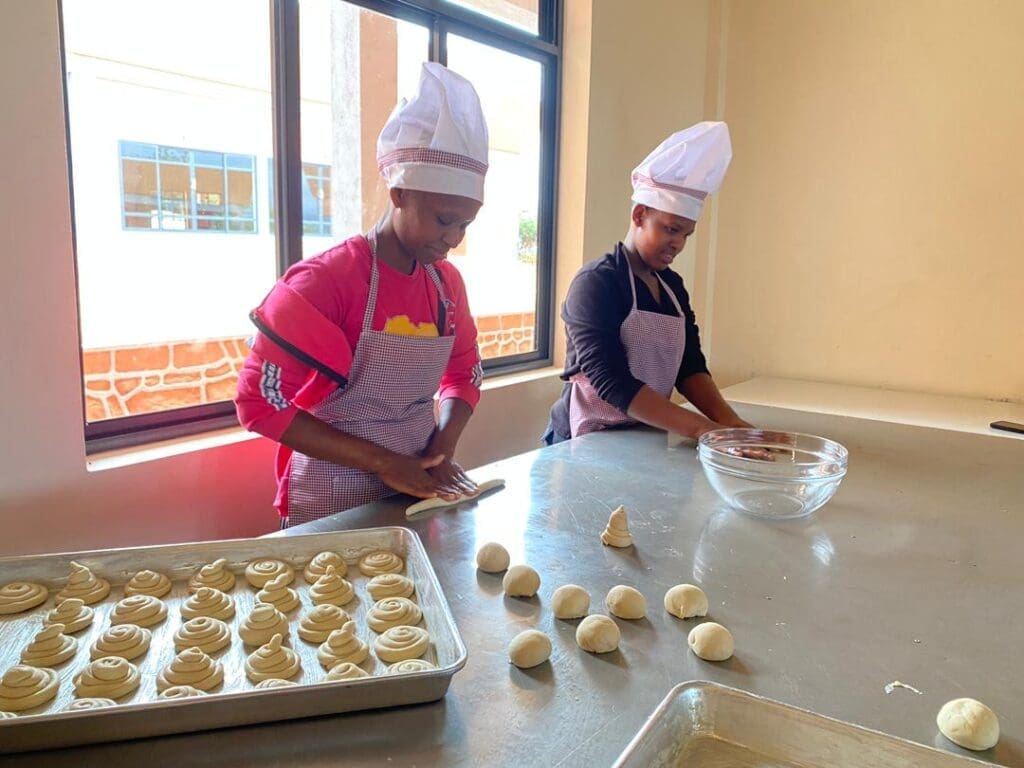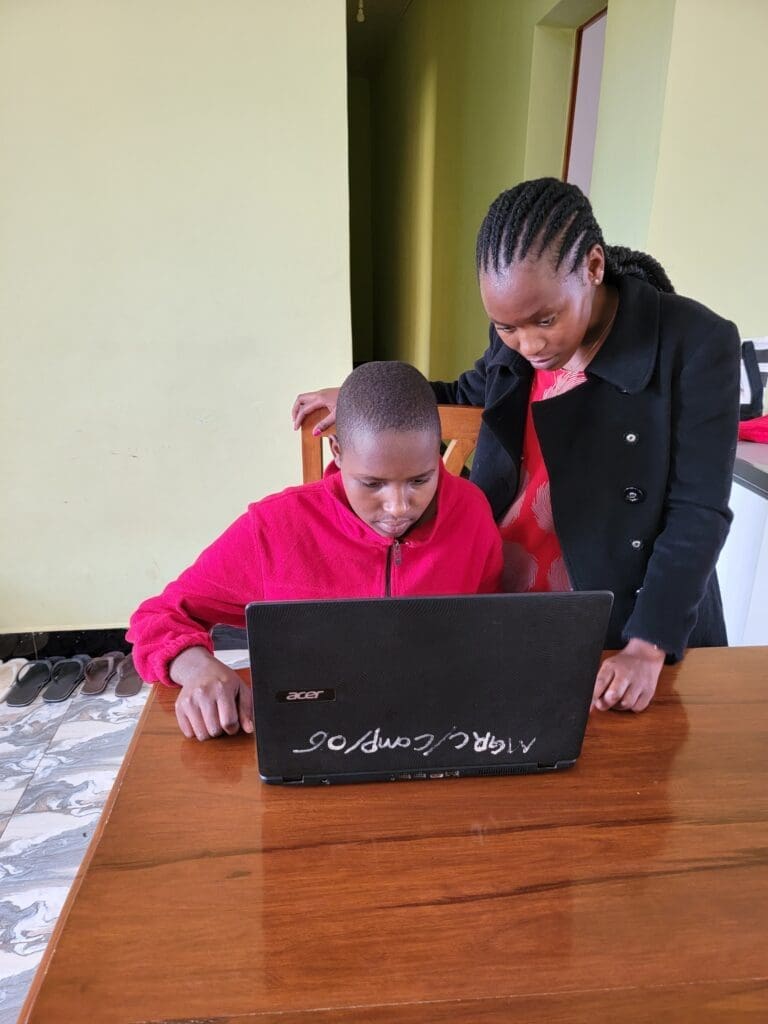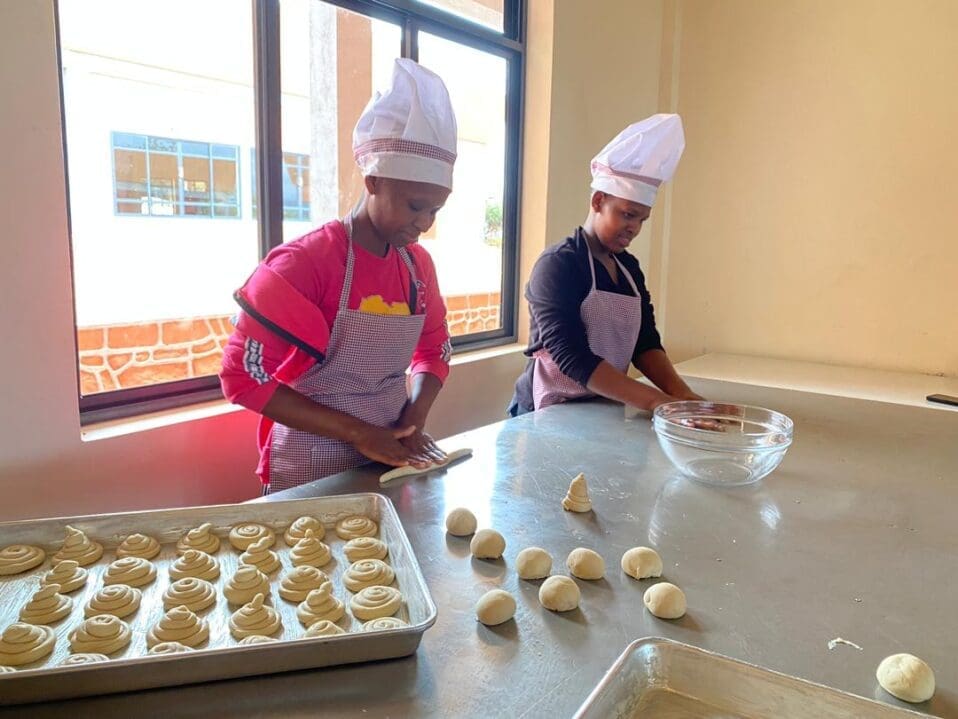Word is out in Tanzania about MGRC. We are being recognized for our unique sustainable strategy, and keen individual focus for each of our girls’ future. Our innovative social enterprise business model is setting an example for other social enterprises to follow in achieving sustainable social impact.
A model for sustainable social impact
The regional government social welfare office was so impressed with our social enterprise model he spent a day at MGRC reviewing our strategy, processes, metrics and business system. He then told all the nonprofit social enterprises and children’s home charities within his region that ours is the model they should be following.
Inspiring other charities to adopt a sustainable strategy
This has led to several busloads of charity leaders coming to MGRC to understand our sustainable strategies and processes for running an effective social enterprise. What these community-minded charity leaders recognized is that we aren’t like everyone else. What they saw isn’t just our nice new facilities, but the processes and systems we have in place to track, measure and improve every aspect of our organization through social impact entrepreneurship. And while these practices might seem obvious to some, I assure you, most of the organizations here don’t do any of these things. We run MGRC like a business, with a clear social enterprise definition and meaning. Our leadership is made of entrepreneurs and business leaders who don’t want to just treat symptoms, but efficiently solve issues for transformative change.
Empowering Maasai girls, one step at a time.
Our approach is rooted in four key principles:
- Visionary Leadership: We believe in the power of education and empowerment to create lasting change.
- Innovative Solutions: Our entrepreneurial plan provides a sustainable path forward.
- Data-Driven Success: We track progress closely, ensuring our efforts are effective and impactful.
- Sustainable Results: Our goal is to create a ripple effect of positive change that benefits generations to come.
By turning these principles into tangible actions, we’re empowering Maasai girls with the resources and education they need to become confident, financially secure, and self-sufficient women.
Individualized plans for each child
The social welfare minister and other charity leaders recognized another significant difference: our commitment to individualized plans for each child to help see a way to independence. Some girls do well in an academic environment, particularly the younger girls. However, the girls who join us at a later stage in life without any prior schooling experience, it may not always be feasible for them to complete their education within the formal government school system. In such cases, we dedicate significant individual attention to each girl, taking the time to understand her unique abilities and skills in order to guide her towards a suitable life trajectory. This is one of many social entrepreneurship examples that sets us apart.
Preparing Maasai girls for independence
Many organizations provide basic needs for life, but when a child turns 18, they are unprepared for independence. This perpetuates a cycle of dependency. To address this, we have implemented a career training program for girls as part of starting a social enterprise. From an early age, they are introduced to a range of different professions including cooking, baking, sewing, eco farming, as well as computer and business skills. This training in sustainable agriculture and other vocational areas promotes social and environmental sustainability.



When the girls are 18, they can enter a vocational school that will train them and help them find a job upon completion. We recently enrolled our first two girls in this program, and they are thriving! They are feeling proud and secure, knowing they have a plan for their future. As social environmental entrepreneurs, we recognize the importance of financial sustainability in empowering communities.
Building a sustainable future based on our unique sustainable strategy
The most significant attribute that sets us apart from other charities is that we don’t plan on being a charity forever. Our social enterprise model and sustainable strategy will allow us to eventually break the bonds of dependency. We’re building an ecoLodge for tourists to stay and enjoy the natural wonders. Profits will support the girls’ welfare and provide them with hospitality industry skills, boosting their job prospects..
It is truly rewarding to see our vision inspire more organizations to look at charity in a new way, To pave a path to a better future for our Maasai girls, and all Tanzanian children. We hope our example of sustainable strategy encourages more social entrepreneurs to develop innovative solutions to the world’s pressing environmental and social challenges.


Comment(1)-
Vic Rice says
October 28, 2023 at 10:49 amA hearty congratulations to you and your entire team Rick. Having known you for decades, nothing about the evolution of MGRC is surprising. I feel privileged to be able to contribute to an organization like MGRC. Charities like MGRC are few and far between.
Vic